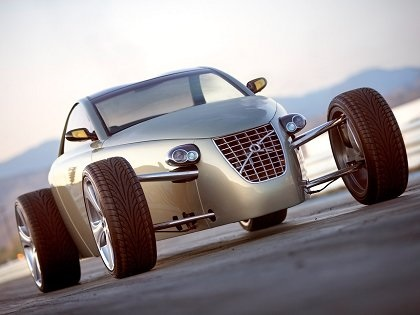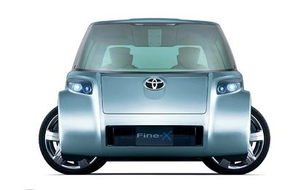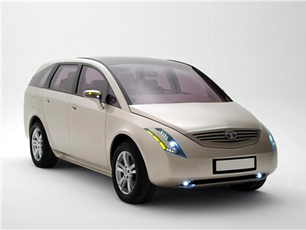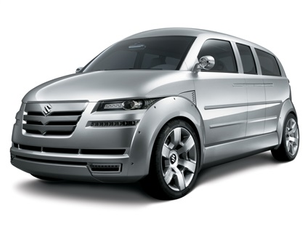2003 Mercedes-Benz F500 Mind Concept by Coggiola
- Story Cars
.png/v1/fill/w_320,h_320/file.jpg)
- Nov 1, 2024
- 2 min read

The 2003 Mercedes-Benz F500 Mind Concept, designed by Carrozzeria Coggiola and presented at the Tokyo Motor Show, served as a highly advanced research vehicle, showcasing over a dozen experimental technologies aimed at shaping the future of automotive engineering. With a sleek fastback silhouette and unconventional design choices, this prototype not only highlighted luxury and innovative style but also incorporated a suite of advanced safety, comfort, and driving technologies.

One of the F500 Mind's most radical innovations was the replacement of traditional accelerator and brake pedals with pressure-sensitive, electronic controls. Each electronic pedal used eight sensors to detect pressure, transmitting data directly to the engine and braking systems. This setup allowed for precise and responsive control, reduced cabin noise by eliminating the need for a pedal box, and minimized the risk of leg injuries in a frontal collision. The saved space also allowed the front seats to be moved 120 mm forward, creating an expansive cabin with 980 mm of hip-to-hip distance between front and rear occupants, maximizing passenger comfort.

The interior featured a cutting-edge "multivision" display that enabled the driver to customize displayed information based on preference and driving conditions. Complementing this was an infrared night vision system, which used two infrared headlights to project a clear view of the road up to 150 meters ahead, displayed on the dashboard for increased nighttime safety. Additionally, the F500 included a voice control system and an innovative ultrasound-based sound system, which projected audio directly to the driver, enhancing focus on the driving experience.

Under the hood, the F500 Mind housed a powerful 320-horsepower V8 diesel engine paired with an electric motor, delivering improved fuel efficiency over traditional engines while retaining high performance. Another unique structural element was the elimination of standard A- and B-pillars, replaced by a single carbon fiber column positioned between the front seats. This design, along with larger glass surfaces, provided a panoramic, open feel to the interior and improved driver visibility.
The F500 Mind, acting as a mobile research lab, not only provided insights into future Mercedes-Benz technologies but also demonstrated the brand's commitment to pushing boundaries in comfort, safety, and efficiency for upcoming models.




























Comments